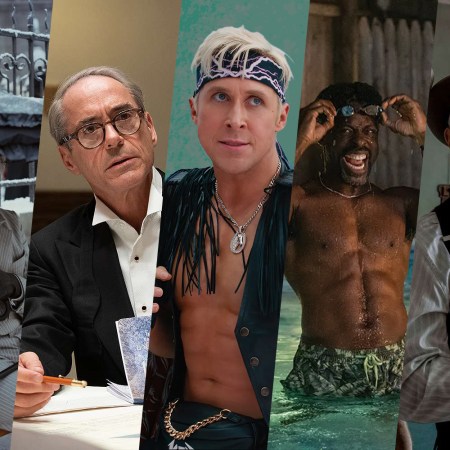“A high culture is the self-consciousness of a society. It contains the works of art, literature, scholarship and philosophy that establish a shared frame of reference among educated people” – Roger Scruton
Popular Culture versus High Culture: It’s a debate as old as art itself, and a recent report by the Hollywood Reporter that the Academy Awards will be adding a new category for “outstanding achievement in popular film” will surely spark that debate anew.
It is already raging online, with Polygon joking that “movies that make a billion dollars will finally get the recognition they deserve,” and the Los Angeles Times boldly proclaiming, “The Academy of Motion Picture Arts and Sciences has officially declared that all popular films suck.”
Pop Culture is defined as a wide audience enjoying entertainment that doesn’t require a deep level of education or specialized knowledge. So-called high culture engages consumers in more complex thoughts and ideas. Neither form is superior , and in reality they can’t even be fairly measured against each other — they have different aims. What is important is how effectively they communicate with their audience.
After all, cinema tells you what it is. Within the first 5 or 10 minutes you usually know if a movie is designed to reach a broad spectrum of viewers or if it belongs in its own peculiar niche. Pop culture films frequently address universal themes — think the hero’s journey of Harry Potter — while films considered high culture may deal with a more personal journey of discovery. Characters in the latter aren’t always universally relatable. They ask the audience to see themselves in the more complicated world onscreen. A good example is Richard Jenkins discovering someone living in his house in The Visitor.
This split between styles directly relates to success in ticket sales, and inversely when it comes to handing out awards.
It’s no secret that recent Academy Award winning films such as Moonlight, that only made $27.8 million at the box office, have dominated the awards. More crowd-pleasing fare such as Fantastic Beasts and Where to Find Them — with hauled in $234 million — is relegated to what are considered minor categories (in terms of prestige) such as sound or costume design.
This celebration of what moviegoers have seldom favored is often seen as elitist by audiences watching the biggest film award show of the year. Herbert Gans writes in his book that “The culture war is a class conflict: an attack by the cultured against the uncultured.”
Since its first show in 1929 with two film awards for “outstanding picture” and “unique and artistic picture” the Academy Awards has often seemed at conflict with itself. That conflict, of course, comes from the balancing act between trying to produce a star-studded show that will drive the ratings up and the artistic integrity in celebrating the finest achievements in film. If audiences don’t watch, then there’s no show; so at a certain level you have to give them what they want. To put it another way, as Gans said in his book, “All people have the right to the culture they prefer.”
That conflict between commerce and art has often led to complaints about the process, about the nominations, about representation, etc. The current complaints online about the new award seem to dwell on the question of whether creating a second film category will be a slap in the face to the films nominated, akin to being asked to sit at the kid’s table.
As for a “popular film” award, it is a ghetto and will be perceived that way. Imagine if they instituted it this year: “Oh, It’s lovely that the rabble went to Black Panther–here’s a special fake Oscar it can win!” This is just a head-slapper on all counts.
— Mark Harris (@MarkHarrisNYC) August 8, 2018
I’ll be okay with this “Best Popular Movie” award at the #Oscars if they also change the “Best Picture” category to “Best UNPOPULAR Movie.”
Because that’s what you’re really saying, Academy.
Unless the same film wins both categories, but if that happens, what was the point?
— William Bibbiani (@WilliamBibbiani) August 8, 2018
I heard a different perspective on it from talking to independent filmmaker Gorman Bechard. I asked him if the award could turn out to be a good thing. He responded:
It’s a difficult question in that what’s popular and what’s art have rarely mixed in the past. No one is going to give an award to McDonalds for great food. But they make a lot more money than any Top Chef restaurant. So is awarding the best of the popular like saying Best Cheeseburger goes to Burger King? Perhaps. Is there anything wrong with that? Not at all. Perhaps the fast food chains would try to make better food. Perhaps the tentpole features which dominate the multiplexes will have a bit more story, more spice, better acting, instead of a lot of CGI on top of more CGI. I guess I see the popular award as something that can only help those films strive to be better. One can hope anyway.
One thing is for sure – you can’t please everyone. Ideally the new format will produce twice the number of nominees and help bring recognition to some underappreciated films of both High Culture and Popular Culture.
Handing out new awards to hit movies won’t end the debate, but at least it will give us more to cheer for.
This article was featured in the InsideHook newsletter. Sign up now.
























